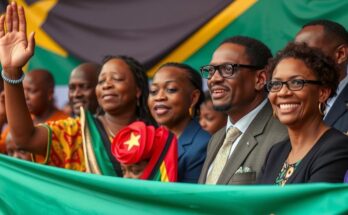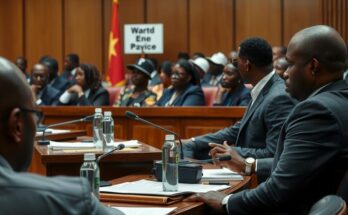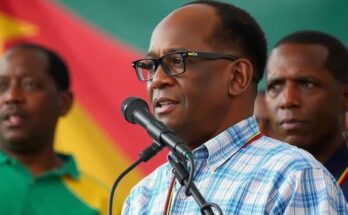Independent election experts have validated the opposition’s tally sheets, claiming they substantiate evidence of President Maduro’s defeat. The Carter Center confirmed the functioning of the electronic voting system during the disputed July election, while the government has faced accusations of not publishing detailed results and investigating opposition members for alleged falsifications.
An independent panel of election experts has authenticated the tally sheets presented by the opposition in Venezuela, asserting that these documents substantiate claims of President Nicolás Maduro’s electoral defeat. This announcement was made during a session organized by the Organization of American States (OAS) to investigate the outcome of the July presidential election. The U.S.-based Carter Center, one of the two independent monitoring groups authorized by the Venezuelan government, stated that the electronic voting system was functional and confirmed that various stakeholders, including the ruling party, are aware of the actual results. The controversy centers around a significant number of tally sheets, known as “actas,” which serve as printed evidence of the election results in Venezuela. During the July 28 election, each of the approximately 30,000 electronic voting machines produced multiple copies of these sheets, which were accessible to representatives of the parties involved. Shortly after the polls closed, electoral authorities, aligned with the ruling party, proclaimed Maduro as the victor without providing detailed results, citing a hacking incident that prevented the disclosure of such information. In stark contrast, the opposition was able to obtain and publish more than 80% of the tally sheets online. Following this, the government accused opposition members of fabricating these records and initiated investigations against them, targeting the opposition coalition’s candidate, Edmundo González. In her address to the OAS diplomats, Jennie Lincoln, who headed the Carter Center’s Venezuela mission, emphasized that the electronic voting system, despite its digital nature, provided a paper trail that accurately reflects the machine reports. She informed the assembly that both the opposition and the ruling party had access to the same tally sheet information, reinforcing the credibility of the opposition’s claims. However, Lincoln refrained from declaring a winner, noting that such pronouncements are within the purview of electoral authorities. The session held by the OAS was prompted by requests from multiple countries, including Argentina and the United States, urging deeper scrutiny and publication of detailed voting data from Venezuela’s electoral authorities.
The current political climate in Venezuela is marked by disputed elections and allegations of fraud and manipulation. The controversy surrounding the July presidential election has intensified with conflicting claims from both the government and opposition regarding the legitimacy of the results. The role of independent observers, such as the Carter Center, becomes crucial in ensuring transparency and accountability in the electoral process. The assertion that the voting system provides a verifiable paper trail plays a significant part in the ongoing debate about the integrity of Venezuela’s elections.
In summary, the recent declaration by independent election experts underscores the complexities surrounding Venezuela’s electoral legitimacy, particularly regarding the July presidential election. The opposition’s assertion of a legitimately obtained electoral defeat for President Maduro, supported by the independent verification of tally sheets, raises critical questions about the government’s transparency in reporting election results. The resolution of this dispute remains pivotal in the political landscape of Venezuela as international pressure mounts for clarity and accountability from electoral authorities.
Original Source: apnews.com



